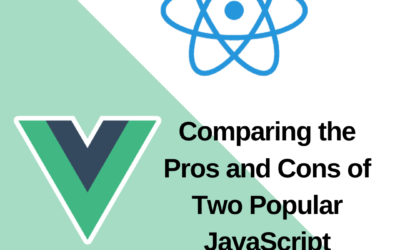Comparing Next.js and Gatsby: Which JavaScript Framework is Right for Your Project?
Next.js and Gatsby are two popular JavaScript frameworks that are used for building web applications and websites. Both frameworks have their own unique set of features and benefits, and choosing between them can be challenging. In this article, we’ll compare Next.js and Gatsby to help you understand the differences between the two and determine which one is the right fit for your project.
Next.js
Next.js is a framework for building server-rendered React applications. It was developed by Vercel (formerly known as Zeit) and is based on React, a popular JavaScript library for building user interfaces. Next.js provides a set of features that make it easy to build server-rendered React applications, including automatic code splitting, optimized performance, and server-side rendering.
One of the main benefits of using Next.js is that it allows you to build server-rendered applications, which can be beneficial for SEO (search engine optimization) and performance. Server-rendered applications are also easier to build and maintain, as they don’t require you to build a separate server-side codebase.
Next.js also has a strong community of developers and a rich ecosystem of plugins and integrations. This makes it easy to find solutions to common problems and extend the functionality of your application.
Gatsby
Gatsby is a static site generator for building fast and modern websites. It is based on React and uses GraphQL, a powerful query language, to pull data from a variety of sources. Gatsby allows you to build static sites that are optimized for performance and have a modern, reactive feel.
One of the main benefits of using Gatsby is that it allows you to build static sites that are fast and easy to deploy. Gatsby sites are also easy to scale, as they don’t require a server to run. This makes Gatsby a great choice for websites that don’t require frequent updates or real-time data.
Gatsby also has a strong community of developers and a rich ecosystem of plugins and integrations. This makes it easy to find solutions to common problems and extend the functionality of your site.
Comparison
So, which one should you choose? Here are a few points to consider:
- Server-side rendering: If you need server-side rendering for your application or website, Next.js is the better choice. Gatsby is a static site generator and does not support server-side rendering.
- Data sources: Both Next.js and Gatsby support a wide range of data sources, but Gatsby has an edge when it comes to pulling data from multiple sources using GraphQL. If you need to pull data from multiple sources, Gatsby might be the better choice.
- Performance: Both Next.js and Gatsby are optimized for performance, but Gatsby has a slight edge due to its static nature. Gatsby sites are fast and easy to scale, making them a great choice for high-traffic websites.
- Use case: Ultimately, the choice between Next.js and Gatsby will depend on your specific use case. If you need to build a server-rendered application or website, Next.js is the better choice. If you need to build a static site, Gatsby is a great option.
In conclusion, Next.js and Gatsby are both powerful frameworks that can be used to build a wide range of web applications and websites. The choice between the two will depend on your specific needs and use case. Both frameworks have strong communities and rich ecosystems of plugins and integrations, making it easy to find



